Posted on 12/30/2022
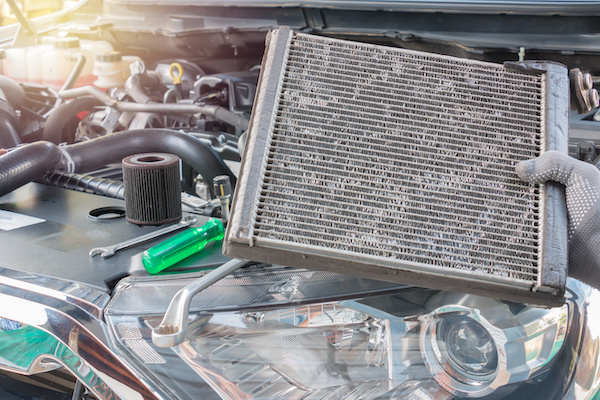
The car radiator enables the engine to maintain an appropriate temperature. It means that the engine cannot get too hot, but at the same time, it must have the necessary heat to convert gasoline into energy. The radiator helps transfer heat from the liquid coolant into the ambient air by way of its many thin tubes. The radiator serves to cool the engine by circulating coolant to the engine and engine cylinder. Inside the car, there is a thermostat that regulates the flow between the engine and the radiator. If the coolant drops below the required temperature, the thermostat restricts the flow of coolant. When the engine warms up, fluid enters through the radiator and radiator hoses. The purpose is to prevent overheating. Then the radiator cap is designed to release pressure. Once the radiator is cool, the coolant returns to it. As a reminder to avoid burn accidents, people should avoid lifting the radiator cap of a car that has recently been running because it will be too hot to touc ... read more
Posted on 11/30/2022
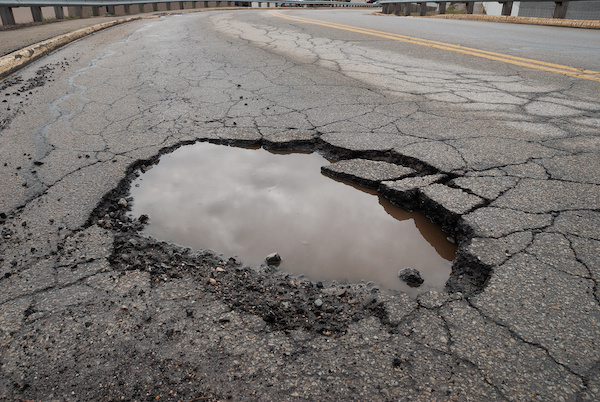
Imagine driving along a smooth and paved road to suddenly feeling a drop that makes your entire car shake. That is how potholes sneak up on you. They cause your vehicle to pull away harshly. Potholes can be found everywhere on the road, and they can be a major pain to deal with. When your vehicle hit potholes hard enough or too often, it can cause some serious damage to your automobile. While you can sometimes dodge them, other times you can't. If you've recently driven over a deep pothole, please check your car for any signs of trouble: Tires - The first part you should check is, of course, your tires. They had a direct impact on the pothole, so they can take the biggest hit in terms of damage. Some common examples of damage include tire bulges, tread reformation, tears, and more. Wheels - Next, you will want to evaluate if anything dented your wheels. If that checks out, make sure your wheels are still properly aligned ... read more
Posted on 10/31/2022
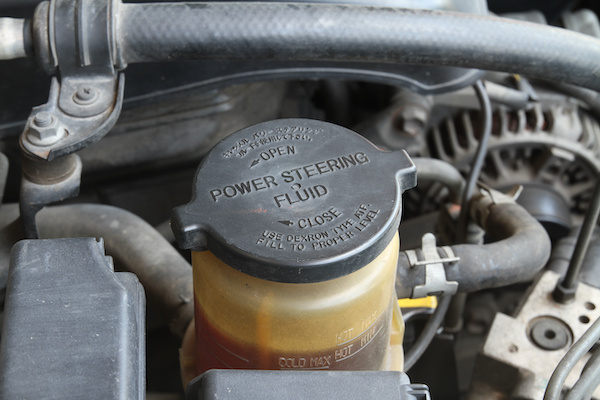
Modern cars have power steering, meaning they have power steering fluid. The hydraulic fluid transfers the power in the power steering system and determines how easily you can turn the steering wheel. Most drivers do not consider changing the power steering fluid as part of vehicle maintenance, but it is. You need to regularly replenish the power steering fluid. Read on to find out why. Reasons To Replace Power Steering Fluid There are several reasons you need to replace the power steering fluid, including: Contamination Your power steering system, like other parts of your vehicle, is prone to getting dirty. Dust and other elements will enter the power steering, and it will contaminate the power steering fluid. When contamination occurs, the fluid turns into a sludge that is inefficient at power distribution, negatively affecting steering control. You need to replace the power steering fluid to avoid contamination and its adverse effects. Check if the liquid is red, which means it ... read more
Posted on 9/30/2022
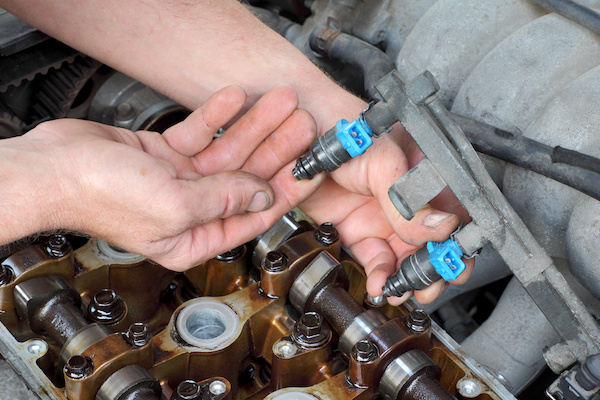
Regardless of your caution or the quality of your gasoline, fuel systems require upkeep. Your fuel system may become clogged with air and gasoline impurities over time. This lowers engine output and fuel efficiency and may make it difficult to start or maintain engine operation. Here is how you will know when your car needs a fuel system cleaning; Gas mileage is poor Your engine will consume more fuel if it doesn't get enough fuel to balance the air/fuel ratio. Although it might appear that clogged injectors would improve fuel efficiency because less fuel is pumped through them, this is untrue. The engine that is low on fuel will need more fuel to run. Trouble with Idling and Starting Starting issues and/or harsh idling are further signs of a fuel system issue. For instance, if your automobile is difficult to start and you smell gasoline, it's possible that the fuel pump is jammed in the open spot and fuel has filled your engine. In contrast, if your car idles jerkily, your ... read more
Posted on 8/30/2022
.jpeg)
Most drivers tend to forget about their car’s legs – yes, we are referring to your tires. They play an integral role in the safety and performance of our cars. Not only should you maintain its pressure, but you should pay attention to its tread wear and pattern. Let’s not forget that they can sometimes get damaged too. Overall, tire health can drastically make a difference in your vehicle’s handling and braking performance. All the factors mentioned above can play a part in determining when your next tire change is. To be specific, here are several indications that mean you’re due for a tire replacement: Poor Air Pressure - If one or more of your tires struggle to retain air pressure, you should have it checked out for damage. In some cases, a tire can be patched. Severe penetrations can require a replacement instead. Low Tire Tread or Bald Tires - Naturally, when the ridges on our tires get too low – it is time to change out your ti ... read more
Posted on 7/27/2022
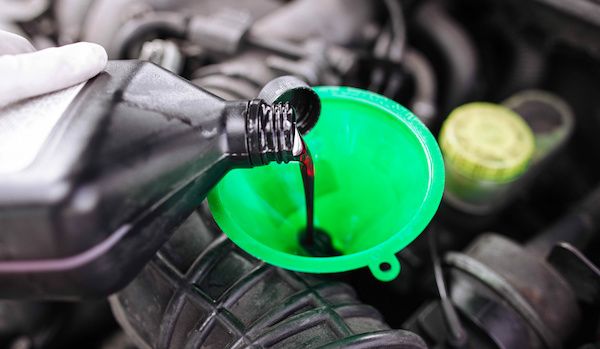
The transmission fluid is one of the most vital parts of a healthy and well-performing vehicle. This is the fluid that lubricates the gears, transmission, bearings, and all metal components of an automatic and manual gearbox. It, therefore, keeps the metallic components from grinding against each other, tearing and wearing the surfaces. Usually, transmission fluid is red or pinkish, although, on rare occasions, you might find them in other colors. It is typically translucent when fresh and in perfect condition and appears brown, dark- red and sometimes milky when it goes bad. So Does the Warning Come Light Come On for Low Transmission Fluid? There are numerous signs of low transmission fluid, and the engine warning light is one of them. This is the fastest and easiest way to detect a car's problem. The light is part of a vehicle's onboard diagnostic system. A warning light mostly indicates a higher fluid temperature than usual, and you might want to ... read more
Posted on 6/27/2022
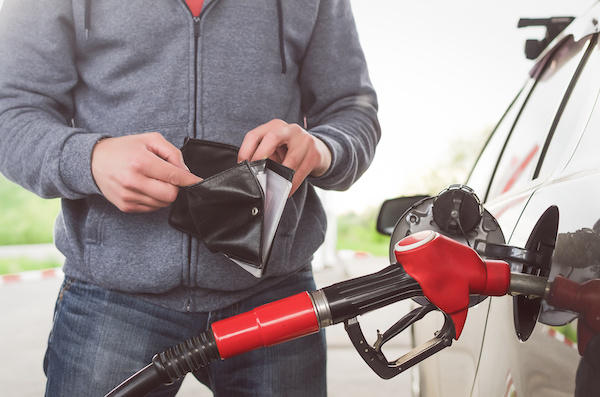
Inflation is raising the cost of nearly everything, especially gas. Taking steps to go further on one tank will help you save money on gas and reduce the number of trips to the gas station you have to make. Here are some tips to help you increase your vehicle's fuel efficiency. Drive More Smoothly One of the best ways to increase your fuel efficiency is to avoid rapid acceleration and hard braking. By driving smoothly and coming to gradual stops, you can avoid wasting gas. Stopping and starting reduces fuel economy by up to 30% on the highway. Shift Gears Conservatively Downshifting to slow down reduces your fuel efficiency. Instead, upshift as soon as you are able and use your brakes to slow down rather than downshifting. Follow the Speed Limit Increasing your speed actually decreases fuel efficiency. Reduce your driving speed after about 50 miles per hour if you can, even on highways. Utiliz ... read more
Posted on 5/26/2022
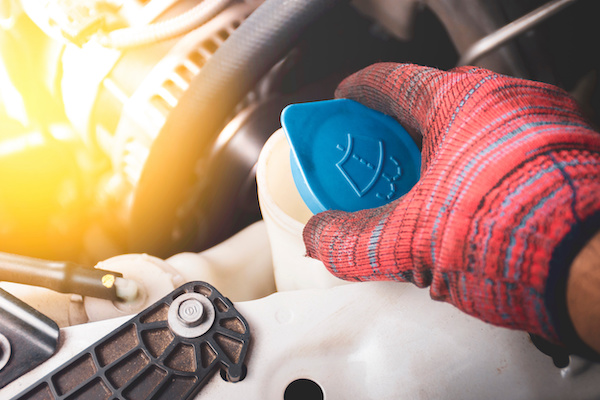
Many car owners use windshield washer solvent to keep their windshield clean. It is a chemical-based product that cleans and shines the windshield. However, it could be dangerous to use water in place of the windshield wiper fluid because it will damage the paint on your car. Although, water is environmentally-friendly. If you're wondering if you can use water as a windshield washer solution, read on: Why Can't You Replace Your Wiper Fluid With Regular Water? While it might seem like replacing your wiper fluid with water would be a simple fix, there are some drawbacks. One drawback is that it will corrode the wiper blades and cause them to wear out faster. It also leaves streaks on the windshield that are difficult to remove. Another drawback is that too much water can cause rust spots in the vehicle's metal parts. Regular water isn't a viable replacement for wiper fluid because it doesn't work well on ice and snow. If it was just replacing the fluid with any ... read more
Posted on 4/28/2022

Travel time with family and friends today is often spent with everyone occupying themselves with a smartphone or tablet. Getting caught up in the digital device world is a common reality, but most of us could benefit from an occasional screen time break and more human interaction. With a little pre-trip planning, your traveling crew can share some device-free laughter and lighthearted competition. We've put together some fun road trip games that are sure to beat travel boredom. 21 Questions - Select a passenger to think of a place, person, or thing, but they don't say it aloud. The other passengers get to take turns asking up to a total of 21 questions, OR until someone guesses the mystery answer correctly. The one who guessed correctly wins and gets to choose the next mystery answer. Casting Call Game - Movie fans will like this one! The first person chooses a name of any actor or actress. The next person has 30 seconds to come up with a mov ... read more
Posted on 3/28/2022
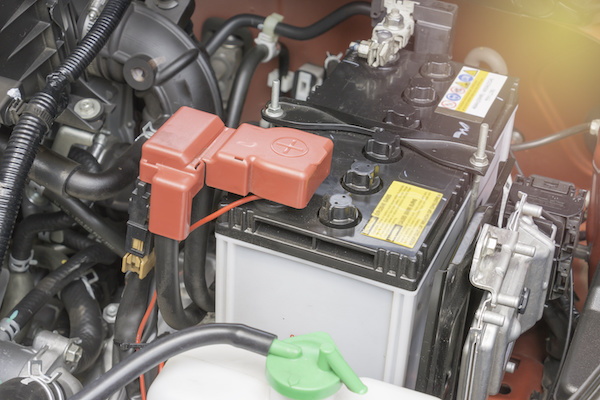
Your car battery should have a life of up to five years with due attention and care taken to it. However, it will be important to know what causes your car battery to deteriorate and the signs that will tell you when your car battery needs replaced. Here are some tips for helping you discern whether or not it's time to change your battery. The causes of car battery deterioration There are a few causes to bear in mind that can lead to a shortening of your battery's lifespan. Knowing them can help you prevent your car battery from deteriorating and needing to replace the battery sooner. They include: Harsh weather conditions - Warm weather can lead to the battery fluid evaporating. Cold weather can cause drainage of the last bit of fluid left. Lights being left on - This can cause the car battery to die and require jump-starting to get it moving again. Having to jump-start your car can cause the battery to wear out quicker ... read more